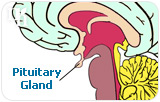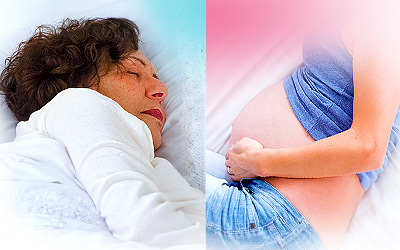
Headaches can be triggered by a variety of factors, such as muscle tension, drinking too much alcohol, or caffeine withdrawal. But during menopause, you may find yourself experiencing more severe headaches more frequently than usual. These menopausal headaches occur because of decreased hormone levels, similar to how some women get headaches before they start their period, as estrogen levels plunge in the days before menstruation.
5 Different Types of Headaches during Menopause
There are different types of headaches you may suffer from. These include menstrual migraines, tension headaches, and sinus headaches.
Menstrual migraines. This is a common type of headache caused by a hormonal imbalance. These headaches begin on the first day or two of menstruation and recede once it has ended. For women experiencing perimenopause, or the stage leading up to menopause and the cessation of menstruation, menstrual migraines are still possible, and might even be exacerbated by the fluctuating hormone levels.

Migraines with an aura. These begin with a neurological phenomenon where women begin seeing bright shimmering lights around objects or at the edge of their field of vision.
Migraine without an aura. This is the most common type of migraine. It will occur on one or both sides of the head, and can even cause fatigue or mood swings within 24 hours of the start of the headache. Women suffering from these headaches may also experience nausea, vomiting, and sensitivity to light.
Tension headaches. These affect 88% of women at least once in their life. This type of headache can also cause pain in the back of the neck, at the base of the skull.
Sinus headaches. These headaches usually began with an allergic reaction that causes the sinuses to become inflamed and prevent the outflow of mucus. This headache will cause aches and pains throughout the forehead, and around the eyes and cheeks.
How Can I Treat My Menopausal Headaches?

If you think you might be suffering from a hormone-induced headache, then it is recommended that you try changing your diet or exercise routine to try to lessen the intensity and frequency of episodes. By eliminating certain foods, such as aged-cheese, alcohol, food additives (preservatives), and cold foods, you are reducing the number of triggers that could be causing you to suffer from menopausal headaches. Also, yoga, regular exercise, and meditation are good for reducing your stress and headaches. Keeping your body as healthy as possible is one of the best ways to keep headaches at bay.
Hormones play a vital role in your menopausal headaches, but you should also know about how the other hormones that are present in your body interact during menopause. To learn more click on the following link about treatments for natural hormones.


